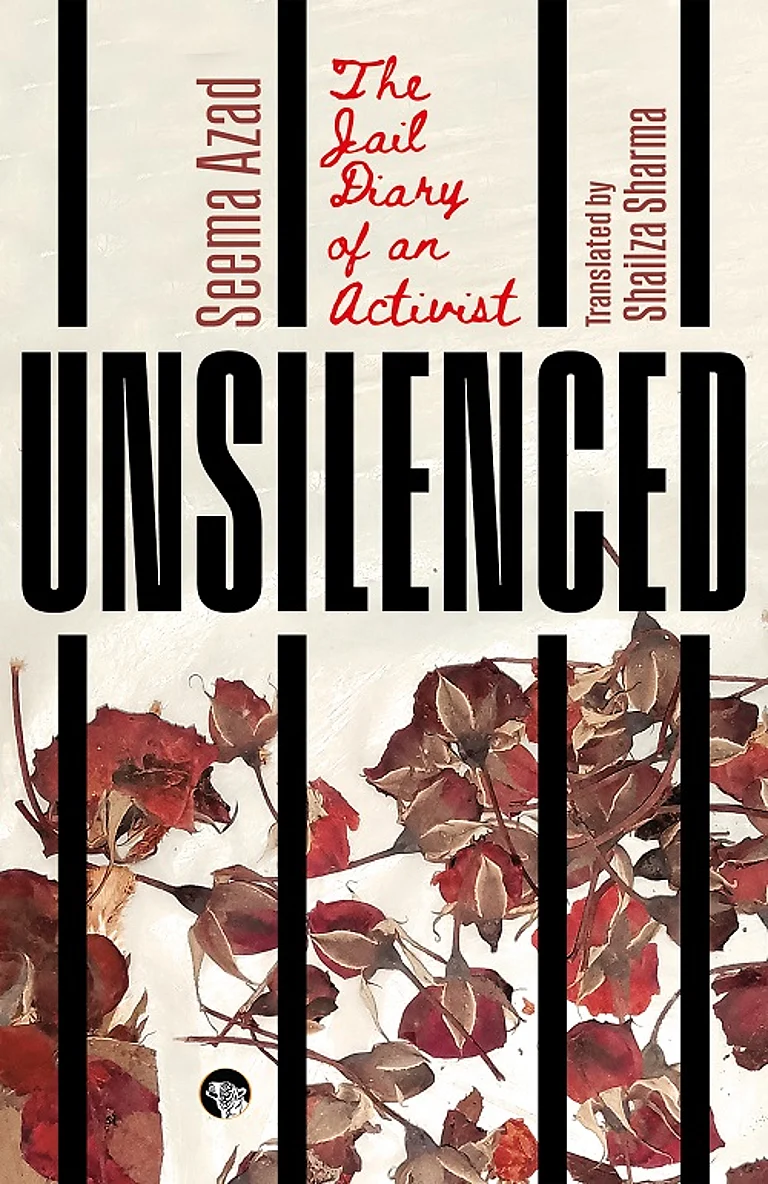Water dripping from her hair, soothing floral smells of soap and shampoo protecting her against the putrid smell all around, she walks back to her box of a room. But at the moment, it’s not suffocating. That fear of being choked under patches of plastic sheets does not bother her any more. Nor does the thought of the wobbly shanties coming down one night to bury her. It’s cool, quiet now – the world at peace with itself. A soothing breeze from the canal slips in through unseen gaps in the shack’s corrugated tin walls.
Rabeya opens her small, rusty trunk and takes out a handloom sari. Against the bright yellow background, the red flower motif shimmers. A man comes every other month selling things from Bangladesh – saris, DVDs of Dhaka movies, music tapes. She bought this Tangail sari from him.
Holding the sari under the light bulb, she pores over the design. The intricate needlework with golden zari lends weight, richness to the sari’s borders. When she unfolds seven yards of fine fabric, an old, comforting smell fills the little room. It brings back life in Khulna: busy sari shops in Daulatpur Bazaar, mounds of vermicelli under the awnings, men returning home from the big cities of Dhaka, Khulna and Chittagong, crowded launches whistling to drop anchor. The warm aromas of rich food – biryani, zarda, semai, payesh – waft out of every kitchen in the village.
That’s Eid.
Then, things were different. Abba was still her abba and hadn’t taken a new bride. Her mother would get up early to cook fish, meat and sweet dishes. Happy but exhausted after so much cooking. After the men came back from the Eid congregation in the village square, the house would overflow with people.
Rabeya sprays talcum powder on her body before hooking the blouse and drawing a dot in the middle of her forehead. Nandita bought her a perfume. More than the fragrance, she loves the gold-and-glass container. Not real gold but golden. The feel of gold. She thinks of spraying on a little perfume, then changes her mind. Nah. I will give it to Ameena; the beauty-parlour girl will love it. She puts it in her purse.
Locking the door, she starts towards the main road. Her open hair, past her waist, occasionally flutters in the morning breeze. At Mausi’s shop, she waits for a moment. Is she looking for him, half hoping to run into the loony somewhere, say Eid Mubarak? She did not take his call the other day. He looked for her everywhere and had to face Kaku’s ire. She feels bad now. Thinking of the crazy man, his clumsy ways, her own dilemma – she gets confused.
Something has happened to him. A completely changed man, he talks of going away, not coming back from that beautiful place. Seems to have got money. A lot of it. Rabeya flags down a cycle rickshaw.
‘Sector 8, Janata Flats,’ she says importantly, climbing onto the back seat. The rickshaw-wallah stares at her confusedly but pedals on. A rickshaw ride had always been a luxury for her until she sat inside Didi’s big car. You drown in the softness and cool hush of the car’s back seat, in the filtered darkness and depth of comfort, inhaling a mild, musky fragrance. Nandita – that’s her name. ‘Call me Didi,’ she said. Rabeya felt an inexplicable assurance in her presence. She called the other day. ‘My car will pick you up; we are going to shop again.’
The rickshaw enters an enclave of low-cost, four-storey flats. Built by the government for the socially marginalized, plaster has peeled off their walls, exposing the bare brick in places. Seepage has softened the buildings here and there, leaving a trace of salt on some walls. Still, Sector 8 is a long way from the steamy shantytown. The blocks, built in regular order on either side of a road, have taken on a pattern. There are open spaces and green patches all around the colony. The rickshaw-wallah stares at her again. As if he is not sure where she belongs – to the slum or Sector
(Excerpted from Bhaskar Roy's Border Crossers; with permission from Hachette India)


























